The first person who was nice to me when I landed in Washington was a middle-aged, burly white man wearing a “Make America Great Again” hat. He stood up to offer me his seat on the metro. “No, thank you,” I said. If I were a black woman, would he have been so polite?
The train was jam-packed with Trump supporters, some dressed in jeans and Trump t-shirts and others in ball gowns and black-tie suits, presumably heading to various inauguration balls around town. That Friday night, January 20, they were the people who ruled the streets, and I felt very much like an infiltrator in their space. With tanks blocking intersections and cops lining streets, helmets on and batons in hand, I felt nervous. As a white woman, my fear may not be justified, but in these new surroundings, I was unsure of how the next day would unfold.

The friction between the two sides was palpable. Walking into an elevator, a man turned to me and said, “It’s crazy out there. I was trying to get my cancer medication and I couldn’t even get into the goddamn pharmacy.”
“I’m sorry to hear,” I said with a sympathetic look. The elevator reached my floor. Walking out, I nodded farewell and wished him luck, to which he responded, “Protestors, they’re all stupid! Don’t worry, I punched one in the face.” The elevator doors shut as I walked away.
Entering my Airbnb, I plunked my stuff on the ground and started being nosey. The photos on the wall showed our host standing with Barack Obama inside the White House. I wonder what her job was? Apparently she was too sickened to remain in town for inauguration weekend, which is how I ended up in her bed.
Heading off into the night, the streets were crowded with Suburban SUVs wheeling around high-up politicians, or perhaps ball-goers hoping to look important. Cops were still directing non-glamorous folk on detours. “Hey!” a woman shouted at me, “Is the lesbian party that way? Do you know?” I didn’t know, but I wondered how she felt walking the streets at night in a town lit up with Trump supporters, many of whom do not support same-sex marriage and wish to revoke those rights for “traditional” (read: discriminative) values.
For a few minutes, I found myself shuffling behind two older white ladies in floor-length (sidewalk-length) gowns and fur wraps. As we walked up the hill, a group of mixed-race youth activists walked down, passing us on the narrow strip. We all brushed shoulders, in a very normal way this tends to happen on populated city streets. The lady in front of me stopped in her tracks and turned to her friend.
“Oh, that was MEAN. She intentionally bumped into me.”
She did not. I know, I was right behind. But this tiny interaction demonstrated so much of the tension I was feeling and observing: a society ripped in half, quick to point fingers, quick to blame, charged to lash out against each other. A society ready to fight.
Stepping outside at 8:30 the following morning, the streets were already filled with knitted pink pussy hats, the most non-threatening symbol of strength and unity to ever be adopted by millions. Not everyone wore one, and not everyone liked them, but they set the tone for the Women’s March: a family-friendly “fuck you” that welcomed Baby and Grandma; a giant love-in, albeit one steeped in anger.
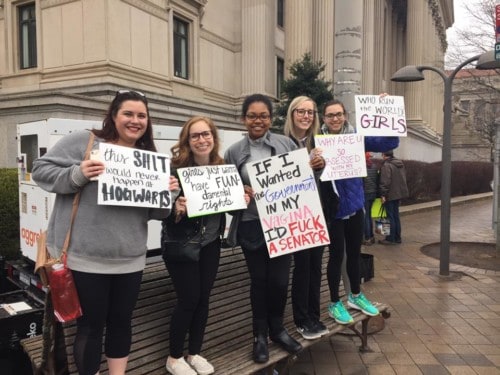
Joining the ranks of people marching towards the start point, I observed who was marching: everyone. Some signs were lol funny: “Trump Loves Three Doors Down.” Others were heartbreaking: “We March On For Trayvon!” or “Was My Sexual Assault Locker Room Talk?” Many people focused their anger on Trump and his administration, while others were there to push issues that preceded Trump: the culture that allowed him to win.
I eventually found myself in a crowd so dense that there was no room for movement. Various cheers would ring out by different people, and the crowd would respond back or join in. (“Tell me what democracy looks like!” “THIS IS WHAT DEMOCRACY LOOKS LIKE!” or “BLACK LIVES MATTER!” or “Welcome to your first day, we will not go away!” or “Hands too small cannot build a wall!” or “Human Rights are Women’s Rights! Women’s Rights are Human Rights!”)
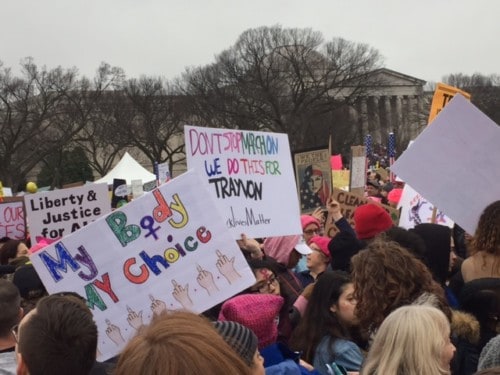
I never got near the stage, but I heard friends’ accounts and watched footage of Janelle Monáe introducing the mothers of Trayvon Martin, Jordan Davis, Eric Garner, and Mohamed Bah. While singing, “Hell you Talmbout,” each mother stepped forward to yell their son’s name into the mic, over and over. If anyone present misunderstood this protest for simply being an anti-Trump movement or a pussy snatch back, this emotionally powerful moment set the record straight, and reminded all that there are, and always have been, varying levels of inequality, white supremacy, oppression, and police brutality. Trump’s election, and his empowering of these attitudes, simply brought them to the surface.
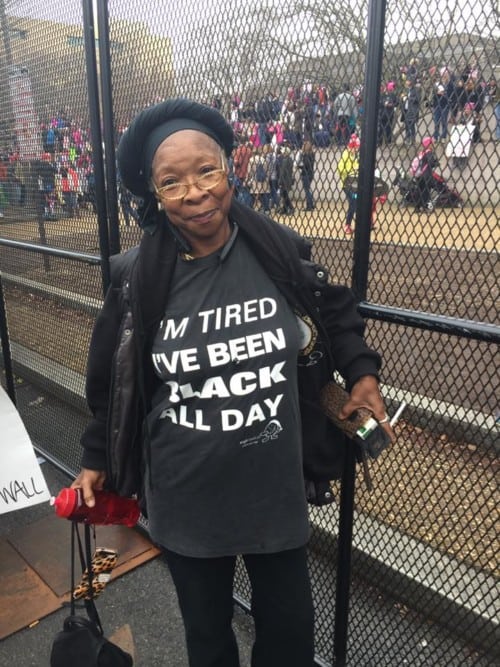
Near the end of the day, I found myself in pockets of live music or speakers blaring out dance anthems. It was a wonderful feeling to dance with strangers from all over and feel that even though we all came with different messages we wanted to be heard loud and clear, together, we were on the right side of history. But is it that easy?
I went to bed feeling high and woke up feeling a bit hungover. The feeling of euphoria was replaced with confusion, questions, flashbacks, and the fact that this president didn’t acknowledge his people, not for a minute. The reality is that no Russian golden shower or assault allegation will make this mess disappear; the road ahead is long and bumpy.
In the Uber car, we chatted with our driver Joe all the way to Baltimore. “I don’t know if you know this, but black boys and men get shot here,” he said.
“Yeah, it happens at home too.”
“I don’t feel as safe right now in America as I did a few months ago.”
And with that, we were at the airport. Sipping our Starbucks and on our way home, privileged white women boarding a plane to our safe homes in Toronto, while Joe remains in fear for his life, for the lives of his two daughters in a country divided and full of firearms.
I think back to the start of this trip, to the white man in the red “Make America Great Again” cap. If he’s willing to stand up and offer me his seat, that means he sees me. If he sees me, maybe he can hear me. If he can’t hear me, because I’m a woman, maybe the woman he’s with would listen. If I can be of use in this movement, it is to use my privilege to get noticed, whether that be in the classroom, the boardroom, the subway platform, or the next protest: working for equality is something we can all do, every day.
On the flight, I’m seated near the back. Looking ahead, I see tiny pink ears poking up at various seats. I look at them and wonder what the hats really symbolize. The sight of them makes me chuckle, but I also know that soft pink vag hats won’t win this. We need to show our claws and teeth.
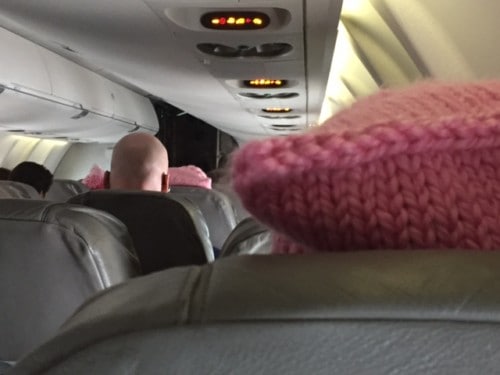


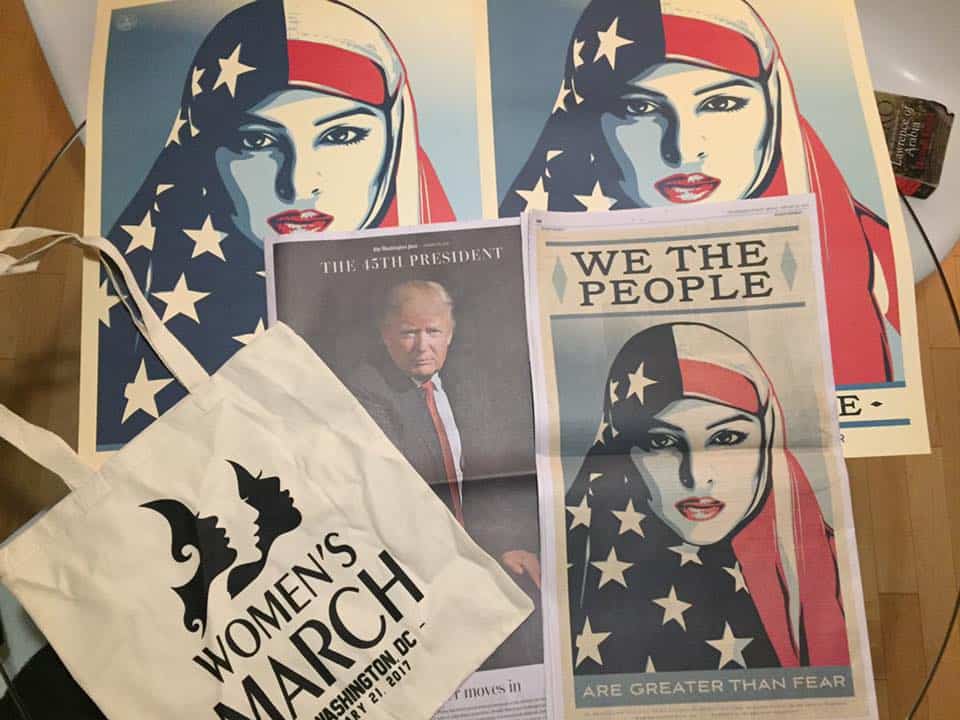
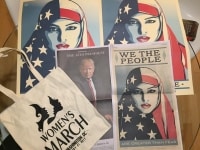
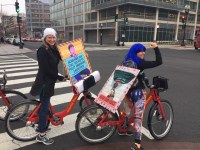
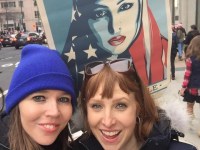
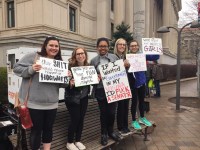
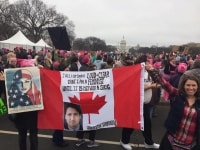
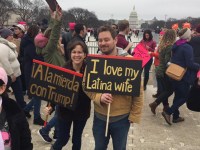
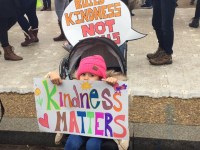
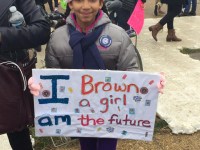
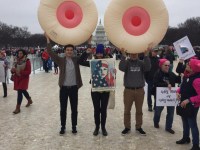
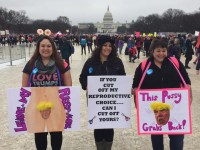
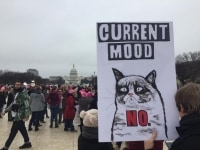
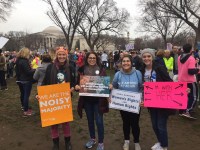
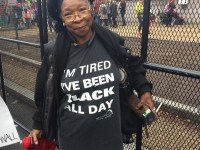
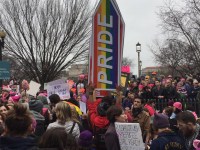
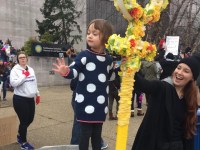
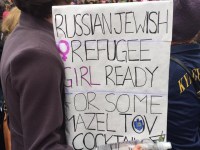
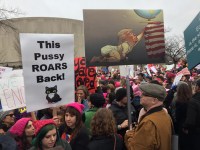
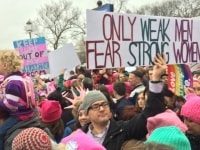
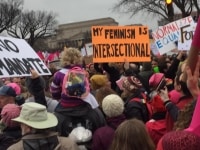
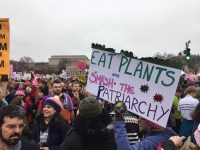
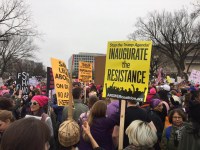
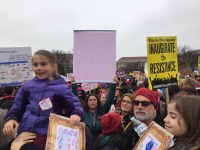
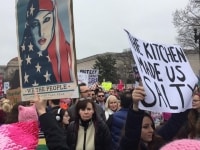
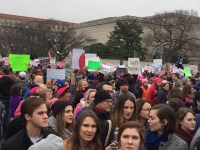
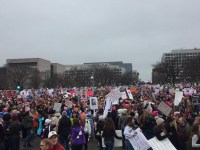
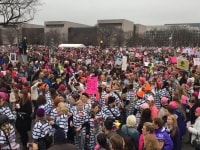
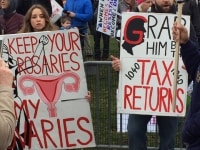
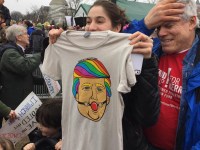
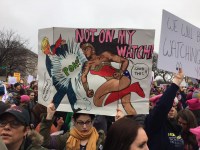
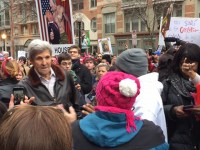
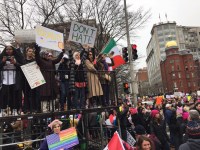
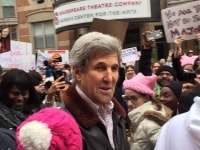
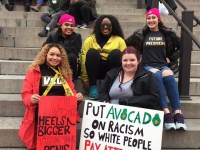
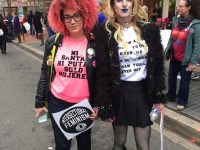
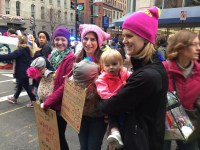
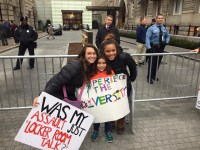
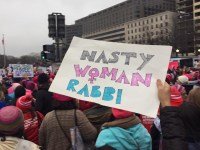
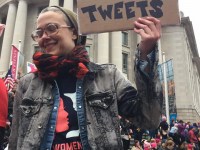
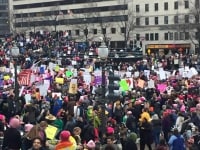
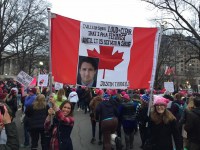
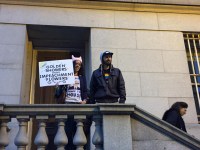
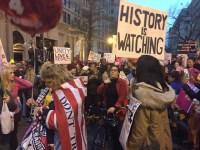
 Follow Us On Instagram
Follow Us On Instagram
